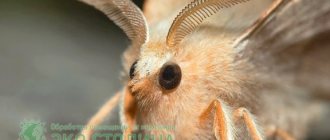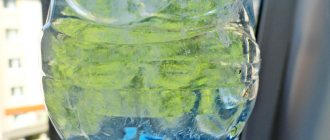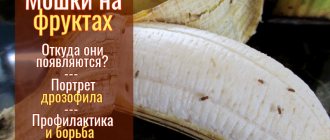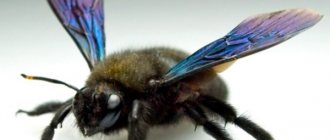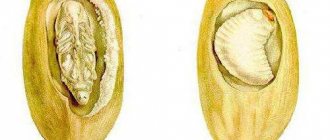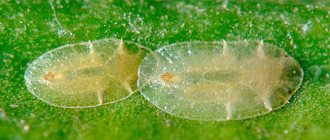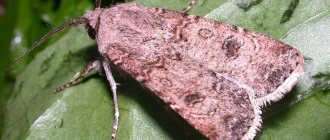Growing a lemon tree in an open area is possible only in the southern regions. Citrus lovers in the middle zone usually cultivate them at home or in greenhouses. After 5 years of painstaking work, the tree pleases with fragrant yellow fruits. Lemon care includes not only maintaining temperature conditions, fertilizing and watering, but also pest control. If the plant has become weaker and brown spots appear on the leaves and branches, this is a scale insect. A small parasite sucks the life force out of the tree. How to get rid of scale insects on lemon? It can be removed using chemicals or safer folk remedies.
Scale insect - description of the insect
The scale or shield aphid is the most common pest on citrus plants. The sucking insect, depending on the species, has sizes from 1 to 5 mm. To protect them from external influences, their body is covered with a wax shield. In insects belonging to the suborder Coccidae, male and female individuals differ significantly. Males are smaller than females, they have one pair of wings and normally developed limbs. Their scutes are flat and elongated, their mouthparts are poorly developed.
Females are noticeably larger, but are completely devoid of limbs (in some cases, even vision). The lemon scale sticks to the plant and leads a sedentary lifestyle. The purpose of the female is procreation; to protect her and her offspring, the scale insect is endowed with a powerful rounded shell. The male finds a mating partner by moving around the plant. After the female is fertilized, they die.
Pests reproduce by eggs; viviparous species are less common. The insects are very prolific and quickly colonize the plant. Active larvae emerge from the eggs. They move around the lemon tree until they find a good place to latch on. Females remain motionless forever. Females live for several months, during which time they lay up to 100 eggs. After several molts, a shell of skins and a wax segment appears on the back of the insects.
Information. The false scale insect, a pest very similar to the scale insect, settles on plants. They differ in several ways: larger size (up to 7 mm), the shell is easily separated from the insect, and pseudoscale insects do not secrete a sweet secretion.
How to get rid of aphids on lemon
To prevent the infection from developing into a severe infestation, measures should be taken in time. Controlling aphids on plants in the early stages will prevent severe destruction of citrus. If you manage to detect a parasite, you need to use effective means.
Traditional methods
Garlic infusion has a strong aroma that insects do not like. The head is crushed in a blender or through a meat grinder. The resulting mass is poured with a glass of hot water and left in a dark place for 48 hours. The solution is filtered and poured into a spray bottle. The plants need to be treated every other day for a week, then after 7 days the event is repeated.
An aqueous infusion of tobacco dust is a strong insectoacaricide that fights all sucking parasites. Laundry soap will help improve adhesion to foliage. Lemon should be sprinkled generously. To protect the soil from alkalization, you need to cover the pot with film. The procedures are repeated every other day for 5 days, then a week break.
Crushed wood ash is an effective folk remedy for aphids. Fine powder is sprinkled on the foliage of the plant. If you add raw materials to soapy water, you can easily remove parasites. Spray the lemon or rinse the affected plates.
An infusion of dry mustard quickly copes with a medium infestation. The working solution is prepared from 70 g of spice and 1 liter of boiling water. The liquid is stirred until smooth and tightly closed for 3 days. The spray concentrate is diluted with water in proportions of 1 to 3.
The ladybug is a natural enemy of aphids, with which it is easy to reduce the number of aphids. Several tiny predators do not harm the cultivated plants at home; they quickly devour the colony. After eradication, the insects are released into the wild.
Insecticides
Chemicals affect the nervous system. Affected specimens stop sucking juice from the leaves and die from starvation or organ dysfunction. Iskra Zolotaya fights against aphids, mites and thrips. Add 1 ml of poison to 5 liters of water and spray the greens. For 25 days, the insecticide protects lemons and new shoots.
Aktara is a systemic drug that penetrates the foliage through the roots. After watering, the chemical is distributed throughout the plant tissues and reaches the top on the 3rd day. The product is not afraid of bright sun and high temperatures, protects lemons of any size for a month, and when sprayed – for more than 50 days.
The commander fights not only with adults, but also with eggs and larvae. A strong insecticide after one treatment protects the tree from parasites for a period of 2 to 4 weeks. The procedures are carried out outdoors wearing protective gloves and a mask.
How dangerous are scale insects?
Shield aphids spread throughout the plant:
- lower and upper parts of leaves;
- trunk;
- young shoots.
Adults and larvae suck cell sap from the plant. They do not hibernate seasonally, being active all year round. A tree damaged by them slows down its growth, its leaves turn yellow and fall off. Behind the leaves, the trunk begins to dry out, because it also serves as food for an ever-increasing population of pests. Having noticed the listed symptoms, you must immediately begin to treat the lemon scale insect. In addition to the damage caused by insects personally. They cause fungal infection of the plant. Scale insects secrete a sticky substance on the leaves; this substance is a favorable environment for the development of sooty fungus.
Information. Sooty fungus affects plants with weakened immunity; it clogs cells, preventing respiration, and interfering with photosynthesis. The leaves of the affected plant die completely.
Lemon pests: spider mites and their photos
Spider mites on lemons attack young leaves and immature shoots. It settles on the underside of the leaf blade along the veins and feeds on the juice of the leaves, after which they turn yellow and dry out. It is quite difficult to detect a tick with the naked eye, since this pest reaches no more than 1-2 mm. Signs of its appearance are small, light dots - places where the leaf plate is punctured. In some cases, the leaves curl up, and cobwebs can be seen on their reverse side. New mites hatch in the web, and the affected leaf falls off.
Spider mites can be red, yellow, orange, white, or transparent. The most common pest of indoor lemons is the red spider mite.
There may be several reasons for the appearance of this parasite. It can get home from the street through open windows, or into the soil during transplantation. Often the cause of its appearance is dry warm air in the room.
If an insect is detected, the tree is sprayed with sulfur. Pesticides are also used to destroy it.
For preventative purposes, the lemon is washed under running water, paying more attention to the underside of the leaves. Spraying the affected plant with water and laundry soap has a good effect.
Spider mites do not tolerate ultraviolet rays, so when fighting them, citrus is placed under a special ultraviolet lamp for 1.5-2 minutes. This session is not only harmless to the plant, but increases its resistance to diseases and pests
Treating the leaves with a 96% alcohol solution will help get rid of the parasite. Their surface is wiped with a cotton swab dipped in alcohol. The alcohol should not be diluted, as it will take longer to evaporate, which will cause burns to the leaves. After a week, the treatment is repeated. Before processing, it is necessary to remove all affected parts of the lemon.
To destroy spider mites, you can use 35% sulfaride paste. The tree is treated with this solution 3-5 times with an interval of 7-10 days. However, such treatment is not recommended at the flowering and fruit set stage.
Signs of defeat
The cause of plant disease can be various pests; to determine their type, it is necessary to examine the leaves and trunk of the lemon. At the initial stage of the attack, the small insect manages to hide well from human eyes. Small larvae are difficult to see, but adults are clearly visible. They appear as brown or brown tubercles along the veins of the leaves, on the trunks. These accumulations look like a brown waxy coating. Also noticeable is the sticky secretion that the shield aphid leaves on the leaves.
Information. Indoor lemons are infected with scale insects through the soil with larvae; it is possible to purchase a diseased tree. The source of the pest can be purchased bouquets, fruits, and other indoor flowers.
Sciarids (midges)
Sciarides multiply very quickly when the soil is waterlogged.
And although in small numbers they do not cause much harm to the plant, the large number of midges negatively affects the tree, since adult individuals can carry diseases, and voracious larvae spoil the root system. Lemon grows poorly, does not bear fruit and can become sick. Often the cause of the appearance of sciarids is soil contaminated with larvae. Midges can enter a living space through open windows, ventilation, or through fruits or vegetables. In order not to create a favorable environment for insects to reproduce, the soil should not be allowed to become excessively moist and, especially, not to become sour. Before planting (transplanting) the plant into new soil, it is advisable to spill the substrate with hot water or calcine it. The spread of pests is prevented by sprinkling the soil surface with sand, small pebbles or expanded clay. It is necessary to ensure that the soil mixture is clean, without plant debris: fallen leaves, flowers, etc.
If it so happens that there are too many sciarids, you can use the insecticides Grom-2, Karbofos, Muhoed, Actellik, Bazudin and other drugs. They water the soil (strictly according to the instructions) 2-3 times every 7-8 days. Traditional methods also help get rid of midges: spraying and watering with laundry soap (20 g per 1 liter of water), a weak solution of potassium permanganate, treating the above-ground part of the lemon with infused tobacco for 2 days (20 g per 1 liter of water). Ash and dill seeds scattered over the surface of the soil help in the fight against insects. Some gardeners use matches, which are stuck into damp soil with their heads down for 3-4 days, then they are removed and new ones are used. The procedure is carried out 3-4 times until the midges disappear.
In order for a lemon to delight with its beauty and bear fruit, it is necessary to properly care for it, observe the temperature and humidity conditions, constantly inspect the tree and other indoor plants in order to notice pests in time and take appropriate measures to get rid of them.
Pest control methods
It is quite difficult to destroy scale insects on indoor lemons due to their durable shell. It serves as a shield for the pest from chemicals and other harmful substances. But with persistence and using various means, you can achieve complete destruction of insects.
Mechanical method
The shell of an adult does not allow insecticides to penetrate the insect's body. To remove them from lemon, you should use a mechanical method. To do this you will need:
- alcohol or alcohol-containing product;
- cotton swab or toothbrush.
A cotton swab is moistened with alcohol, and then all places where a cluster of scale insects is noticed are wiped. If insects are difficult to remove, you can use a toothbrush. You should carefully examine the leaves on both sides, ovaries and stems. Scale insects settle in large numbers on lemons, so do the work carefully.
Chemicals
A pest that multiplies quickly like scale insects cannot be dealt with without chemicals.
Information. Chemicals destroy scale insects only at the larval stage. Treatment is carried out twice, with an interval of 10 days.
Among the effective means:
- "Actellik" is a broad-spectrum drug that destroys the body of insect pests. It is used to kill sucking insects. Home plant lovers who have used the drug on their lemons confirm its effectiveness. The disadvantage of Actellik is its sharp, specific smell, which causes a headache in a closed room. If possible, it is better to carry out the treatment outdoors. If the insecticide was applied in an apartment, the room should be well ventilated.
- "Aktara" - the product is considered one of the best drugs against pests. The fight against scale insects on lemon will take only a day, after this period the insects die en masse. The effect of "Aktara" persists when sprayed for up to 4 weeks. The drug can be poured under the root of a low tree, it will be absorbed into the sap of the plant and poison the pests. The substance is classified as moderately hazardous. Therefore, its use for indoor plants does not cause negative consequences.
- “Fitoverm” is a biological type insectoacaricide that has an intestinal contact effect on pests. The drug does not pollute the soil and decomposes quickly. Lemon fruits can be eaten 2-3 days after processing the tree.
Information. After removing the pests, it is recommended to feed the plant. "Epin" is a drug that is a biostimulant for citrus trees, sprayed on the leaves and trunk. It helps lemon cope with stress and restore immunity.
Folk remedies
Chemicals are often used with caution, especially for indoor plants. The use of a composition of soap and kerosene received a lot of positive feedback from flower growers and gardeners. A soap film covers the plant, preventing air access to the insect, and kerosene, flowing under the shell, poisons the scale insect. To prepare the composition you will need the following ingredients:
- 1 liter of water;
- 50 g laundry soap;
- 5 drops of kerosene.
Advice. Before mixing, rub the soap on a fine grater, so it will dissolve in water faster.
All components are combined in one container and mixed thoroughly until the soap dissolves. Use the prepared mixture to treat the entire lemon against scale insects. The solution is left on the plant for 2-3 hours, then washed off with clean water. A pot of indoor lemon can be taken into the bathroom and washed well in the shower.
For processing, tinctures of garlic, onion and pepper are used. They are prepared according to a similar recipe: 50 g of a vegetable (onion with peel, pepper or garlic) is crushed and filled with 0.5 liters of water. Infuses for 14-15 hours. The composition is wiped on leaves and branches. Traditional recipes are effective in combination with mechanical removal of insects.
What is the danger to the tree?
A lemon affected by scale insects is in serious danger. Food for scale insects is proteins contained in the sap of the tree. In the affected lemon, internal chemical processes are disrupted, which negatively affects the condition and appearance of the crop. In the absence of timely treatment, the lemon loses its leaves, then the branches dry out. As a result, the tree dies.
The sugars contained in lemon juice are converted into honeydew in the scale insect's digestive tract. The pest does not stick to its own secretions, since during the course of evolution it acquired special glands that shoot secretions. As a result, drops of honeydew can be seen on a plant, a flower pot, even on window glass and a windowsill, but the scale insect itself remains unharmed.
The sweet secret attracts the ants, and in the end you have to fight them too. Honeydew is also a good substrate for the propagation of saprotrophic fungal infections.
Toxins are injected into the plant tissues of the scale insect, which disrupts photosynthesis and stops the development of the lemon.
Preventive measures
To prevent lemon damage from pests, you should follow simple preventive measures:
- Trim damaged branches and weak shoots in a timely manner. attracting pests;
- send recently purchased plants to quarantine;
- keep the soil in the pot clean;
- regularly ventilate the room, ensure sufficient humidity levels;
- Every week, wipe the leaves of the plant on both sides with a damp cloth, this will get rid of dust and pests.
The fight against scale insects must be comprehensive; this is the only way to completely get rid of insects on your homemade lemon. Compliance with preventive rules will prevent the plant from becoming infected with dangerous pests.
Prevention
Preventive measures are a set of measures aimed at preventing invasion. Bouquets, especially chrysanthemums, should not be kept in the same room as homemade lemons. Flowers cut at the dacha are home to pests. One female mite or aphid will become the founder of a huge colony. As a preventive measure, street specimens are sprayed with dichlorvos.
New potted plants are left in quarantine for a month after purchase. If no signs of pests appear within 30 days, then they can be transferred to the collection. When there is no time to wait, then preventive irrigation is carried out with Aktara.
Citrus fruits love intense lighting, regular fertilizing and proper irrigation. If the basics of agricultural technology are violated, the plant weakens and becomes vulnerable to external attacks. Compliance with care conditions will minimize the possibility of invasion.
Spider mites and aphids on lemons are dangerous insects that are difficult to detect in the early stages. Timely use of chemicals or folk recipes will help destroy the colony. To prevent pests from spreading, you need to use the products correctly.
How to fight?
What to do if you notice traces of mealybug activity on your lemon? How to rid a tree of uninvited guests? All control methods can be divided into two groups: traditional methods and treatment with chemical insecticides. Let's look at all these methods.
We suggest you read: How to get rid of lice bites
Expert comments
Ivan Romasov, therapist at the Semeynaya clinic network
What to do if hiccups do not go away and nothing helps?
In most cases, prolonged hiccups are not caused by a physiological reflex, but as a consequence of various diseases. Self-treatment in this case is inappropriate.
First, you should contact a therapist who will conduct an initial examination and help identify the cause of the hiccups. Most often, the problem goes away on its own with treatment of the underlying disease. But in some cases, to correct hiccups, specialists additionally prescribe serious drugs from the group of antipsychotics.
Why do hiccups appear after drinking alcohol?
The mechanism by which hiccups appear when drinking alcohol is complex. Firstly, ethyl alcohol and its derivatives provoke stimulation of the vagus nerve. Secondly, carbonated alcoholic drinks contain carbon dioxide, which forms an air bubble that compresses the vagus nerve. Thirdly, ethanol breakdown products affect the organs of the gastrointestinal tract and contribute to liver enlargement. As a result, it begins to put pressure on the diaphragm.
As a rule, such hiccups are complicated by a pronounced gag reflex, which is why there is a risk of choking on vomit. Especially if you fall asleep or have a foggy mind. In addition, with the systematic consumption of alcoholic beverages, acute polyneuritis, an inflammatory disease of peripheral nerve endings, can occur.
With moderate alcohol consumption, hiccups go away on their own. To quickly remove toxic ethanol compounds, you can use sorbents: polysorb, enterosgel, polyphepan, activated carbon.
In case of severe alcohol poisoning and long-lasting hiccups, you should consult a doctor. In this case, serious detoxification therapy will be required. Self-use of medications can only cause harm.
Anastasia Pirozhkova, pediatrician of the Semeynaya clinic network
Should I worry if my baby often hiccups in the stomach during pregnancy?
In the second or third trimester, many mothers begin to feel short rhythmic twitches - this is how the baby hiccups. This is absolutely normal. There is a theory that hiccups play a role in the maturation of the lungs and are an important and necessary reflex. There is no need to fight her.
If this makes mom feel uncomfortable, she can try changing her body position, stroking her belly, or eating something. Perhaps one of the suggested methods will work. If a child hiccups for a very long time and often, especially in the third trimester, it is better to go for an examination with an obstetrician-gynecologist.
How to safely get rid of hiccups in newborns?
Newborns hiccup frequently. One study found that hiccups may make a beneficial contribution to the development of the cerebral cortex. At the same time, it almost never bothers the newborns themselves - they continue to sleep soundly. We still don't know the exact causes of hiccups. In newborns, the trigger may be air absorbed during feeding or bloating. You need to help the baby burp out excess air, hold it in a column for 20–30 minutes after feeding. You can use exercises that make it easier to remove accumulated gases.
For older children, encourage them to drink a cold drink, eat ice cream, or change their position. The main thing is to choose safe methods. That is, you should not scare children, pull their tongues or use other sophisticated methods of dealing with hiccups. If hiccups persist for more than 48 hours or often bother your child for a long time, consult a doctor to identify possible causes.
Features of plant processing
Because of the shield, pests are very difficult to exterminate.
Chemicals cannot penetrate inside. Therefore, they are very often an auxiliary method of protection. Physical treatment with a metal scraper or brush cleans an adult tree well. It is very convenient to walk over the bark of them in order to rip off both their shells and the pests themselves. There are no age restrictions; this mechanical method works equally on adults, larvae and eggs. Seedlings and adult apple trees can be treated in this way.
Here are the types of drugs you should pay attention to:
- A phosbecide that acts quickly and effectively, but is very toxic.
- Aktara, an effective remedy with an unpleasant odor that also removes bees.
- Bitoxibacillin, a biological agent of targeted action, safe for humans and other insects.
- 30 plus, a safe remedy that suppresses almost any pathogenic microflora, but is effective only in the spring.
If the lesion is very extensive, it will be easier to saw off the infected parts
It is very important to burn them immediately
Nematodes
All the lemon pests described above damage the aboveground part of indoor lemons - they are visible to the naked eye and easy to diagnose. It is more difficult with pests that live in the soil, in a pot, or at the roots of plants. Among the “hidden” pests of lemons and citrus fruits in general are nematodes and microscopic worms.
Nematodes feed on the juice from lemon roots. Over time, the root system dies off - it dies from necrosis, which also affects the above-ground part: the leaves wither, curl, and stop growing and developing. If the infection is severe, the indoor lemon dies.
Nematodes are quarantine pests; where there are nematodes, total disinfection is carried out. To prevent infection with nematodes, it is recommended to disinfect pots with soil by keeping them in a bucket of boiling water for an hour.
Reasons for appearance
The scale insect can get onto the lemon from other indoor plants or be brought into the room with a bouquet of flowers or on fruit. There may be insect larvae in the top layer of soil of the purchased lemon. Scale insect larvae before the adult phase are up to 1 mm in size, which makes them difficult to detect. The pest may be introduced from a greenhouse where citrus fruits are grown.
Scale insects appear if the tree is weakened due to non-compliance with growing conditions:
- too dry air;
- dustiness;
- proximity of other colors.
In the presence of such factors, the likelihood of a lemon tree becoming infected not only with scale insects, but also with other pests (aphids, bedbugs, mites) and pathogens is high.
